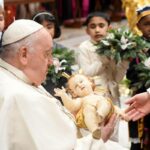KORONADAL CITY (MindaNews / 22 December) – Seven of the nine new National Living Treasures, also called “Manlilikha ng Bayan,” are Mindanawons, three of them members of the Tboli Indigenous Peoples from Lake Sebu town, South Cotabato.
President Ferdinand Marcos Jr. declared them National Living Treasures through the recommendation of the National Commission for Culture and the Arts, pursuant to Republic Act 7355 or the Manlilikha ng Bayan Act.
They were declared as such through Proclamation No. 427 signed by Executive Secretary Lucas Bersamin last December 15 but made public only yesterday, December 21.
Manlilikha ng Bayan refers to a citizen or a group of citizens engaged in any traditional art that is uniquely Filipino and whose distinctive skills have reached a high level of technical and artistic excellence.
The three Tbolis from Lake Sebu town are Bundos Bansil Fara, Barbara Kibed Ofong, and Rosie Godwino Sula.
Fara is recognized for his commitment to safeguarding and promoting the temwe or brasscasting tradition, Ofong for the tnalak (ikat) weaving tradition, and Sula for the lingon (chanting) tradition;
From La paz, Agusan del Sur, Abina Tawide Coguit, a Manobo, is recognized for safeguarding and promoting the Agusan Manobo suyam (embroidery) tradition.
Sakinur-ain Mugong Delasas, a Sama master of traditional dance from Bongao, Tawi-Tawi, is recognized for her commitment to preserving the Sama gal (dance) tradition.
Higaonon Marife Ravidas Ganahon, of Malaybalay, Bukidnon, is recognized for her expertise in the Higaonon ikam (mat weaving) tradition.
Samporonia Pagsac Madanlo, a Mandaya ikat weaver from Caraga, Davao Oriental, is recognized for her commitment to safeguarding and promoting the Mandaya dagmay (ikat weaving) tradition.
The two others are from Luzon.
Amparo Balansi Mabanag, from Paracelis, Mountain Province, is recognized for her commitment to safeguarding and promoting the Ga’dang manu’bak and ameru (beadworks and embroidery) traditions.
Adelita Romualdo Bagcal, an Ilocano master of oral traditions from Banna, llocos Norte, is recognized for her excellence in the Dallot and other llocano oral traditions. (Bong S. Sarmiento / MindaNews)



